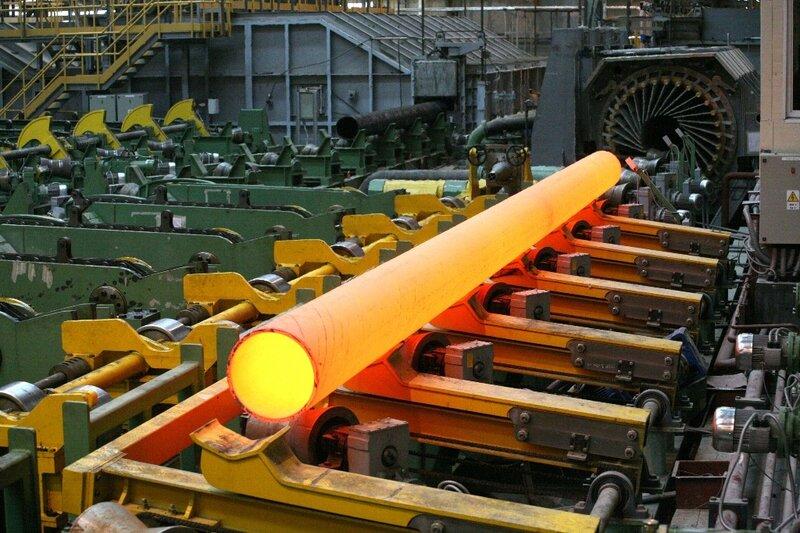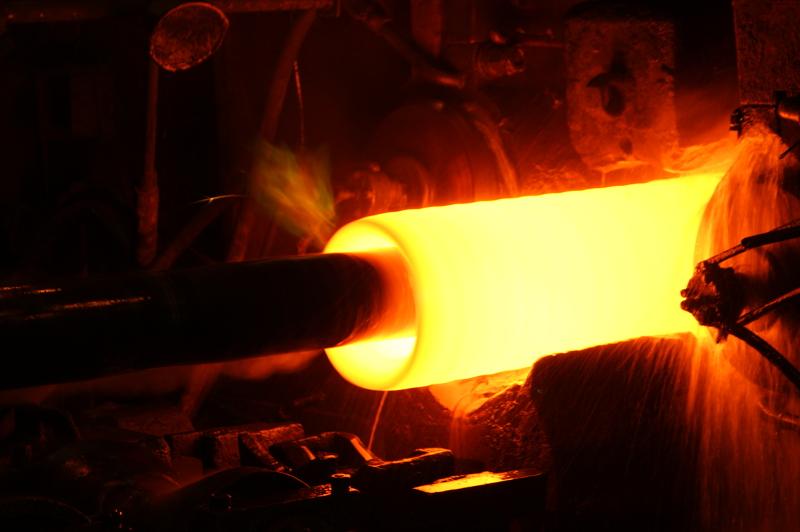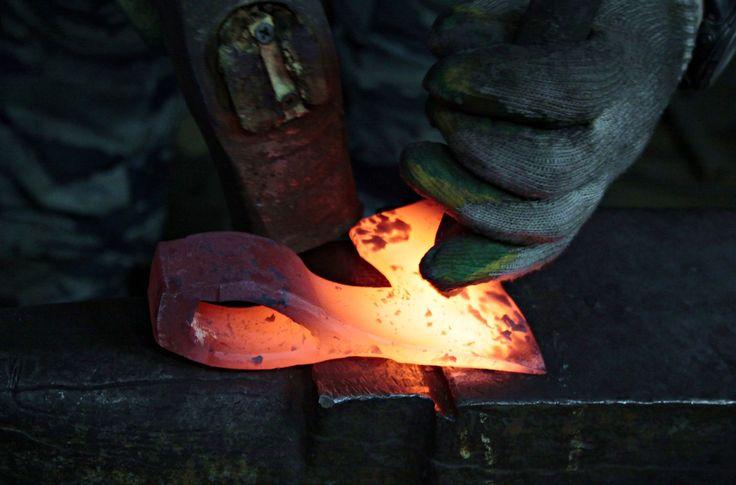Forging companies in USA play a significant role in various industries by producing strong and durable components through metal shaping processes. As energy costs rise and environmental concerns grow, these companies face increasing challenges in managing energy consumption. Finding sustainable solutions to these challenges has become crucial for forging companies to remain competitive while minimizing their environmental impact. This article will explore the major energy consumption challenges facing USA forging companies and the innovative solutions being adopted to address them.

Energy-Intensive Nature of Forging Processes
Forging processes, whether open die or closed die, require significant energy input. The heating of metals to extremely high temperatures and the application of compressive forces contribute to high energy usage. In the USA, energy costs represent a substantial portion of operating expenses for forging companies, especially those that produce large-scale components for industries like automotive, aerospace, and heavy machinery.
The energy-intensive nature of the industry also poses environmental challenges. Large amounts of fossil fuels are often required to generate the necessary heat, leading to substantial carbon emissions. As environmental regulations tighten, forging companies in USA are under increasing pressure to reduce their carbon footprint while maintaining high levels of production efficiency.
Rising Energy Costs and Economic Pressures
In addition to the inherent energy demands of the forging process, USA companies are facing economic pressures due to rising energy costs. As energy prices fluctuate, it becomes difficult for companies to manage operational costs effectively. This has a direct impact on profitability, particularly for smaller forging companies that may lack the resources to invest in energy-efficient technologies.
To remain competitive in the global market, USA forging companies must find ways to control and reduce energy consumption without sacrificing product quality or production speed. This has led many companies to explore innovative energy-saving technologies and practices, which are becoming essential for long-term sustainability.
Energy Efficiency Solutions in Forging
To tackle the energy consumption challenge, many forging companies in USA are turning to advanced energy efficiency solutions. One of the most promising approaches is the adoption of induction heating, which is more efficient than traditional gas or electric furnaces. Induction heating systems allow for precise temperature control and faster heating times, reducing the overall energy required for the forging process.
Additionally, forging companies are increasingly integrating energy recovery systems that capture waste heat generated during production and reuse it in other stages of the process. These systems not only reduce energy consumption but also help lower greenhouse gas emissions, making forging operations more environmentally friendly. As a result, companies can cut costs while adhering to stricter environmental regulations.
Renewable Energy Adoption in Forging companies in USA
Another solution gaining traction among forging is the use of renewable energy sources. By investing in solar, wind, or geothermal energy, these companies can significantly reduce their dependence on fossil fuels. While the initial investment in renewable energy infrastructure can be high, the long-term benefits include reduced energy costs, greater energy independence, and a lower environmental impact.
In regions of the USA where renewable energy is readily available, forging companies market have successfully integrated these sources into their operations, lowering both energy costs and emissions. As renewable energy technology becomes more affordable and accessible, more forging companies are expected to follow suit, contributing to a more sustainable industry overall.

Automation and Smart Manufacturing
Automation and smart manufacturing technologies are also playing a key role in helping USA forging companies manage energy consumption. By automating certain aspects of the forging process, companies can reduce energy waste by ensuring that machines operate only when needed and at optimal efficiency levels. Smart sensors and data analytics enable real-time monitoring of energy usage, allowing companies to identify inefficiencies and make adjustments in real-time.
These technologies not only help reduce energy consumption but also improve overall productivity and product quality. For example, automated forging systems can achieve higher precision in metal shaping, reducing the need for additional energy-intensive processes like machining or reworking. As a result, companies can lower energy consumption while maintaining high production standards.
Conclusion
Forging companies in USA are facing significant challenges in managing energy consumption, driven by the energy-intensive nature of the forging process and rising energy costs. However, by adopting innovative energy efficiency solutions, renewable energy, and automation technologies, these companies are finding ways to overcome these challenges and build a more sustainable future. As the industry continues to evolve, forging companies that prioritize energy efficiency will be better positioned to remain competitive in the global market.
FAQs
Q1: Why is energy consumption so high in forging processes?
A1: Forging processes require heating metals to high temperatures and applying significant force, both of which are energy-intensive operations, especially for large-scale production.
Q2: How are Forging companies in USA reducing their energy consumption?
A2: They are adopting technologies like induction heating, energy recovery systems, and automation to optimize energy use and reduce waste during the forging process.
Q3: What role does renewable energy play in forging operations?
A3: Many forging companies are investing in renewable energy sources like solar and wind to lower their reliance on fossil fuels, reduce energy costs, and minimize their environmental impact.
Q4: How does automation help in energy management?
A4: Automation ensures that machines operate efficiently, reduces energy waste, and enables real-time monitoring of energy use, helping companies optimize their energy consumption.
Q5: What are the environmental benefits of energy-efficient forging technologies?
A5: Energy-efficient technologies reduce greenhouse gas emissions, lower energy consumption, and help companies meet stricter environmental regulations while maintaining production efficiency.


